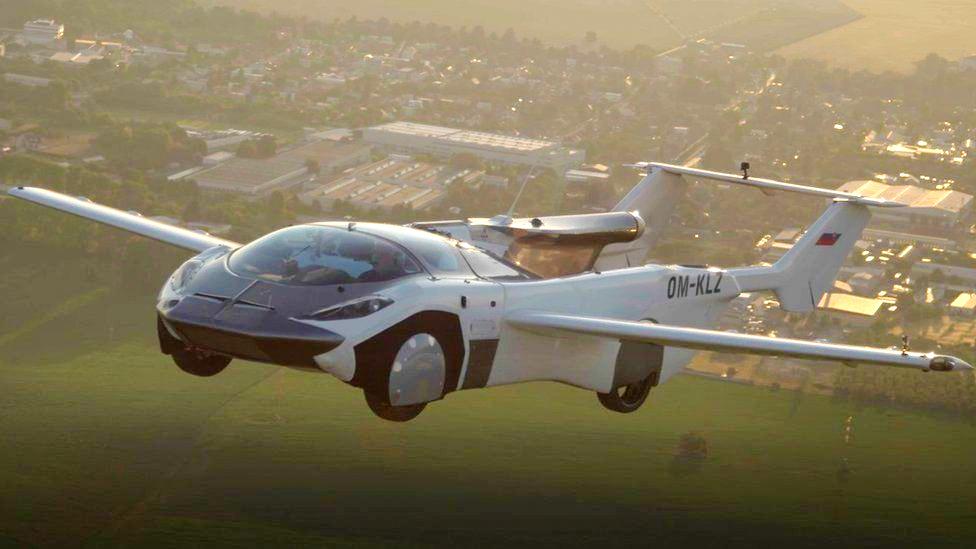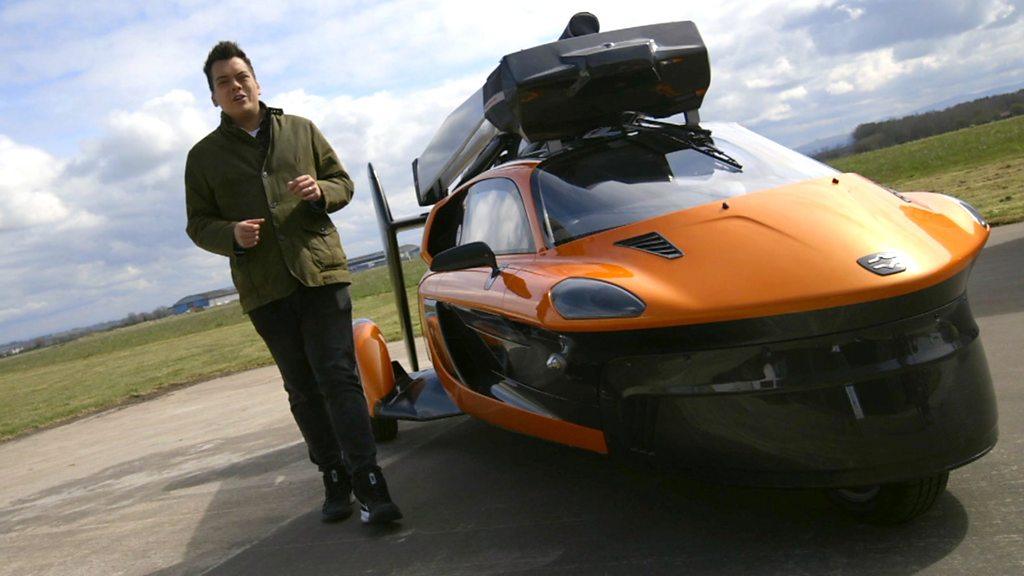Flying car wins airworthiness certification
- Published
Watch: Convertible flying car takes to the sky
A flying car capable of hitting speeds over 100mph (160kmh) and altitudes above 8,000ft (2,500m) has been issued with a certificate of airworthiness by the Slovak Transport Authority.
The hybrid car-aircraft, AirCar, is equipped with a BMW engine and runs on regular petrol-pump fuel.
It takes two minutes and 15 seconds to transform from car into aircraft.
The certification followed 70 hours of flight testing and more than 200 take-offs and landings, the company said.
"AirCar certification opens the door for mass production of very efficient flying cars," its creator, Prof Stefan Klein, said.
"It is official and the final confirmation of our ability to change mid-distance travel forever."
'Cautiously optimistic'
In June, the flying car completed a 35-minute flight between international airports in Nitra and Bratislava, Slovakia.
The company told BBC News it planned "to fly to London from Paris in near future".
Dr Steve Wright, senior research fellow in avionics and aircraft systems, at the University of the West of England, said the news was "a good step down the road" for the company and made him "cautiously optimistic that I am going to see a few AirCars one day - but I think there is still a way to go".
Other companies are also developing vehicles that can fly and be driven on the roads.
The three-wheeled PAL-V Liberty, which flies like a gyrocopter, is road legal in Europe and working towards European Union Aviation Safety Agency certification.
How close are we to personal flying vehicles?
But Dr Wright is cautious about how much mass appeal flying cars may have.
"Are flying cars the future? Yes... and no," he said.
"The personal-transport revolution is definitely coming but not really looking like this.
"From a transport point of view, it has a niche - although, a very interesting niche."
Air-taxi services
The AirCar takes off and lands like a conventional plane and requires a pilot's license to fly.
But a number of companies are working on unpiloted air-taxi services with autonomous flight and vertical landing and take-off.
Promoters hope they will be a convenient and flexible form of transport - and some are attracting significant investment.
Also on Monday, Boeing announced it was investing an additional $450m (£334m) into Wisk, the California-based autonomous-air-taxi company it owns with Kitty Hawk, a company launched by Google co-founder Larry Page.
Related topics
- Published30 June 2021

- Published1 July 2021
